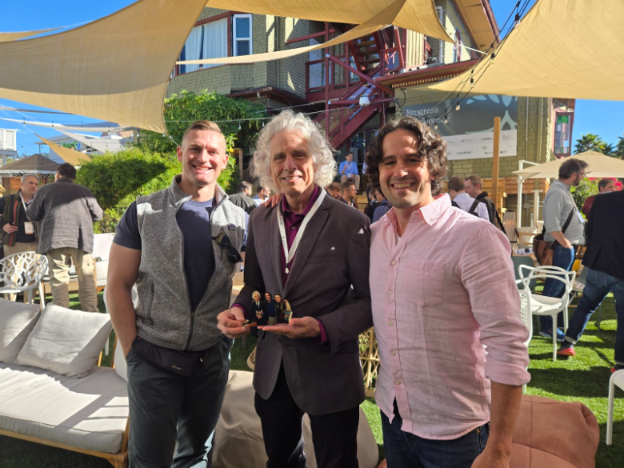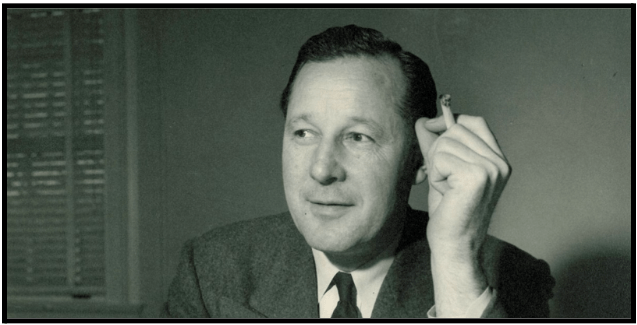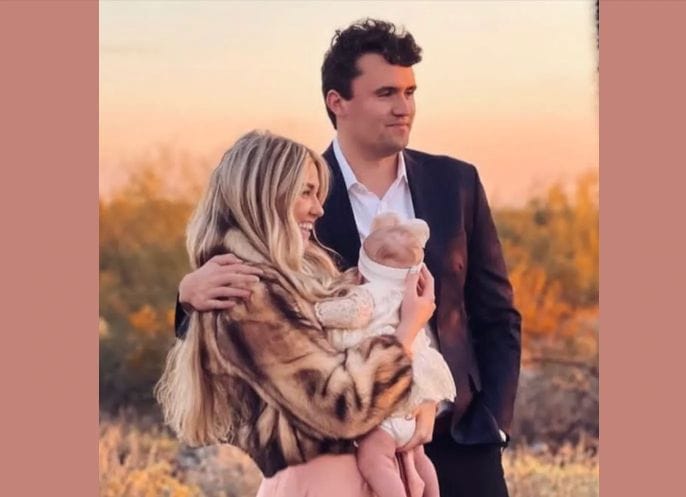Humans have made tremendous progress lately. I’ll bet good money things will continue getting better over the next decade.
Talking Big Ideas.
“Reminder that America rocks and we’ll be great no matter who wins.”
~ Packy McCormick, on the 2024 U.S. presidential election
I was surprised by the election this week. I imagine most of you were as well.
Many close friends of mine are delighted Trump won decisively. Many others are devastated. They’re all good people who want a better future.
I’m not going to pretend I have the correct answers when it comes to politics, nor will I try to persuade you that my political opinions are better than yours. I just want to drive home one contrarian idea that is based on compelling evidence:
The world is getting better.
That’s it.
Regardless of who we elected to office this week, regardless of whatever problems our politicians inevitably cause, regardless of the horrible tragedies that will befall us, people will continue working together to build a better world.
We hear that America is past its prime, we are hopelessly polarized, and civilization is on the brink. But in reality, things quietly continue to improve: across multiple metrics of well-being, little gains compound – in the United States and around the world – to produce incredible results.
A few weeks ago I attended the first annual Progress Conference in Berkeley, joined by an ideologically diverse group of optimists to talk about how we can accelerate human flourishing.
The social scientist Steven Pinker delivered a keynote presentation where he walked through a series of charts that help bring to life our recent progress. He followed it up with an op-ed in the New York Times arguing that “doomers” on the “far left” and “far right” have amplified and intensified “narratives of national decline.”
Pinker says bad things often happen suddenly and make the news, while good things tend to slowly compound over time, “transforming the world by stealth.” Looking at long-term trends helps us see reality more clearly.
Consider the past 50 years in the United States. If we focus on highlights from the news, we see the turmoil of the 1960s, crippling stagflation, Watergate, the AIDS crisis, crack and fentanyl epidemics, the Oklahoma City bombing, September 11th, Hurricane Katrina, a financial collapse, mass school shootings, a murderous pandemic, and countless other horrors.
The “news narrative” suggests we’ve had a terrible run. But if we pull back and look at the data, a different story emerges:
The poverty rate has steadily dropped from 26 percent in 1967 to 7 percent in 2021. It jumped in the wake of COVID-19 and is now dropping again.
At the same time, women made significant gains in civil liberties, participation in civil society, and holding positions of political power.
Pinker shows the United States made similar progress with life expectancy, violent crime, the economy, democracy, and the environment. This chart went viral online after the New York Times published Pinker’s op-ed:
The United States found a way to achieve sustained economic growth – the rising tide that lifts all boats and improves human well-being – while dramatically reducing common pollutants.
Zooming out, world GDP per capita is at the highest point in recorded human history – and many countries have decoupled economic growth from carbon emissions. Globally, life expectancy has more than doubled since 1900.
In just the past three decades, more than a billion people have escaped extreme poverty:
I was on a plane recently and struck up a conversation with the woman sitting next to me. She asked why I was in Dallas and I told her I was giving a talk highlighting how much progress the world has made.
She looked at me confused. She assumed a greater percentage of people live in poverty today than in 1800.
“Clearly things have gotten worse since then,” she said.
And yet, this is the reality:
Our progress has been mind-boggling!
As Max Roser from Oxford University’s Our World in Data says, while the world is still awful in many ways, it is much better than the past – and can be much better in the future.
Progress isn’t inevitable, of course. If we want a better world we have to work together and build it. Thanks to human ingenuity and our ability to innovate and collaborate across time and space, we can continue making progress into the distant future.
My optimism is at odds with the anger and pessimism surrounding the presidential election. It’s made me think of Julian Simon.
In 1980, the economist Julian Simon made a famous wager with the biologist Paul Ehrlich, who achieved global fame in predicting hundreds of millions of people would starve to death by 1990 and “all important animal life in the sea” would be dead.
As an optimist who understood human ingenuity and innovation, Simon was confident Ehrlich’s doomer predictions would fail to materialize. He bet Ehrlich the opposite would happen: the world would be measurably better in 1990.
Simon won the bet.
I’d like to make a similar wager with someone who honestly believes the world will be worse in ten years. We can work together to set terms and select specific metrics on human and environmental well-being.
To put skin in the game, I’m willing to wager up to one ether (ETH valued today at $2,914.56) that the world will be measurably better in ten years.
If you honestly believe Trump’s election – or anything else in the news – forecasts doom, make money off me!
Should the world be worse in 2034, I’ll pay you and write an article declaring you the winner. And if our progress continues as I expect, I hope more people will gain a deeper appreciation for humanity’s resilience – and our ability to work together to build a better world.
***
Email me at bob@ewingschool.com if you or anyone you know is interested in my wager.




